Services
Most service companies are facing a rapid increase in customer demands, both in terms of service quality and prices. They are also faced with the emergence of new, often more agile players with disruptive business models. Service companies are forced to rethink their offer towards greater differentiation and personalization in order to avoid “commoditization” and the loss of direct customer contact, or even to radically transform their operational model.
Challenges in the services industry
Digital transformation is becoming a strategic investment, and even a survival strategy in B2C services, not only in terms of technology and services, but also with regards to the evolution of the company’s businesses and human capital.
At the operational level, the issues are known and numerous. In particular there is a need to adjust offers and capabilities in line with market needs, companies need operational flexibility and to create an ecosystem of partners in line with their make or buy strategy, and payroll needs to be optimized as it often represents between 60% and 80% of operating costs. In addition to these, where possible processes should be optimized and automated, and relationships with strategic suppliers enhanced. Expertise must also be developed, pooled and disseminated.
Digital transformation is a new challenge, both business and operational. Digital pure players are emerging in most services with disruptive business models. Even when the size of these new entrants is not yet a threat, their ability to quickly take a significant share of the value of one or more segments is real. Companies in the industry must therefore understand, on the one hand, the customer and business dimensions of digital, and, on the other, its operational efficiency dimensions.
How we can help the services industry
We support clients in this industry in their transformation from the assessment of challenges to the implementation of all operational performance drivers:
Strategy
- Support the reflection on the digital strategy and launch PoCs
- Review their offer portfolios according to market needs
- Support the business realignment strategy and outsourcing / partnership with key suppliers
Competencies
- Quickly acquire new competencies and skills
- Strengthen the service culture
Optimization and transformation
- Optimize pyramid (payroll)
- Develop centers of expertise
- Transform delivery processes
- Use nearshore resources
- Optimize SG&A and supplier relations
- Master the digital transition
Our approach
We apply a combination of technical expertise, operational experience and business knowledge to help our clients solve service issues and deliver lasting results. Our personal and pragmatic approach, with challenge where needed, ensures buy-in at all levels of our clients’ businesses and a successful outcome. We have worked with a wide range of organizations in the services industry including St John Ambulance, Europ Assistance, Communisis, Banque de France, GPT Group, Foncia, Elior Group, Suncorp, Crown Commercial Service and American Express. Learn more about us here.











